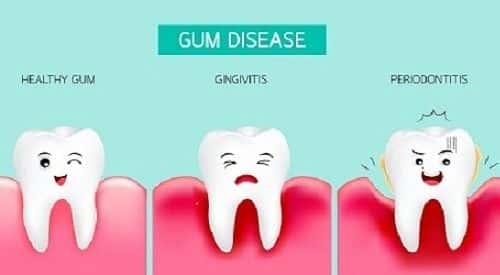
Why Are My Gums Bleeding?
Have you noticed that your toothbrush looks a little pink after your brush your teeth? That pinkish hue is a common sign of bleeding gums. If you don't take steps to treat the condition, you'll increase your risk of developing periodontal disease, a bacterial infection of the gums. The infection can damage gums, teeth, and bones and even cause tooth loss.
Bleeding Gum Causes
Bleeding and other changes in your gums can occur due to:
-
Gingivitis. Bacteria in plaque, the sticky film that coats your teeth and gums throughout the day, plays a role in both tooth decay and gingivitis, the mildest form of gum disease. In addition to bleeding gums, gingivitis may cause bad breath and receding red or swollen gums. A thorough dental cleaning and improved dental hygiene can often reverse the condition.
-
Poor Oral Hygiene. If you don't brush your teeth thoroughly or don't floss daily, you may be more likely to develop gingivitis. Brushing your teeth at least twice per day and flossing once every day can help you avoid gingivitis.
-
Periodontal Disease. Periodontal disease, the more severe type of gum disease, causes a variety of unpleasant symptoms in addition to bleeding gums. The bacterial infection may cause your gums to pull away from your teeth and can damage your gums, bones, and tissue that provide support to your teeth. Periodontal disease can be treated with a special deep dental cleaning called scaling and root planing. You may also need oral surgery to close pockets around your teeth or restore lost gums and bone.
-
Hormonal Changes in Women. Changing hormone levels during puberty, menstruation, and pregnancy may increase your sensitivity to plaque, increasing the risk of bleeding gums. Although gums usually stop bleeding a few days after the end of your period, the condition can be an ongoing problem during puberty and pregnancy. If bleeding doesn't stop on its own in a few days, it's a good idea to call the dentist. He or she may recommend that you schedule more frequent dental cleanings and use anti-bacterial toothpaste and mouthwash.
-
New Toothbrush or Routine. Did your gums start to bleed soon after you got a new toothbrush? Harder bristles are more likely to damage your gums and cause gum recession. Fortunately, buying a new toothbrush with soft bristles is a simple solution. Your gums may also bleed if you've just begun to floss your teeth. Once your gums become accustomed to daily flossing, they'll probably stop bleeding. If the bleeding lasts more than a week, give your dentist a call.
-
Certain Diseases. Bleeding gums can be related to an underlying disease or health condition. Your gums may be more likely to bleed if you have diabetes, thrombocytopenia, anemia, leukemia or hemophilia. European researchers discovered a possible link between asthma and bleeding gums when they surveyed more than 13,000 people about oral and respiratory health. If your dentist suspects that gum changes are related to an underlying condition, you'll be referred to the appropriate medical professional for treatment.
-
Vitamin Deficiency. Your swollen, bleeding gums may due to lack of a particular vitamin. People who have vitamin C or K deficiencies are at increased risk of developing gum issues. Adding more foods to your diet that contain these vitamins and taking supplements, if recommended by your doctor, can be helpful.
-
Crooked Teeth: Removing every trace of plaque can be a challenge if your teeth are crooked or overlap. Orthodontic treatment will straighten your teeth, making it much easier to keep your teeth and gums clean.
-
Poorly Fitting Dental Appliances. Your gums may also bleed if they're irritated by dentures, braces, or oral appliances. Simple adjustments can improve your comfort and prevent bleeding gums.
-
Prescription Medications. Taking certain medications, such as blood thinners or calcium channel blockers can increase your risk of developing bleeding gums. In some cases, it may be possible to substitute your medicine for a drug that doesn't cause these side effects.
Prompt treatment of bleeding gums can help you avoid painful periodontal disease. If you've noticed that your gums bleed easily or look red or swollen, contact us and schedule an appointment as soon as possible.
Sources:
Medline Plus: Bleeding Gums, 2/5/18
https://medlineplus.gov/ency/article/003062.htm
American Dental Association: Bleeding Gums
https://www.mouthhealthy.org/en/az-topics/b/bleeding-gums
Colgate: 5 Causes of Bleeding Gums You Should Know
American Dental Association: Hormones and Dental Health: What Every Woman Needs to Know
https://www.mouthhealthy.org/en/az-topics/h/hormones
WebMD: Bleeding Gums and Your Health, 12/15/16
https://www.webmd.com/oral-health/bleeding-gums-other-conditions#1
PLOS/One: The Association of Gum Bleeding with Respiratory Health in a Population Based Study from Northern Europe, 1/25/16
